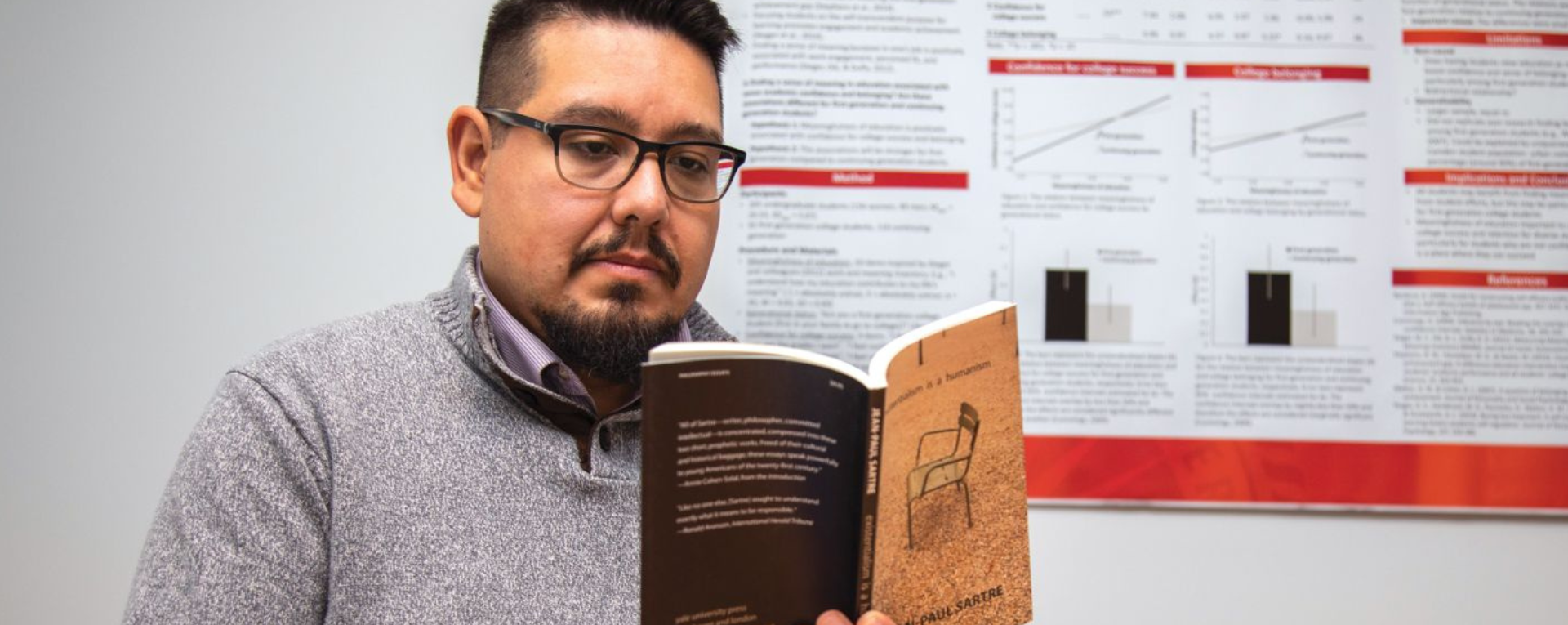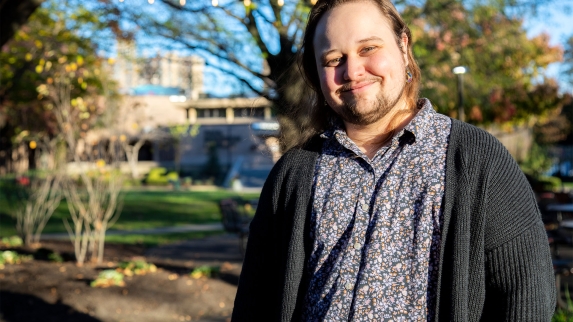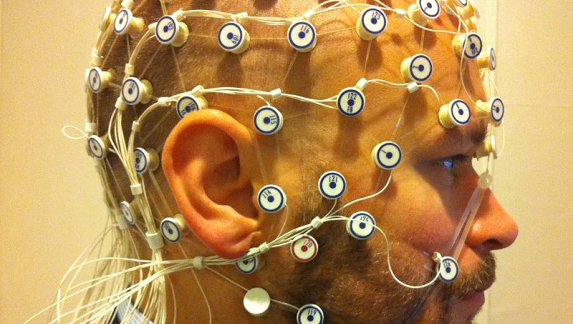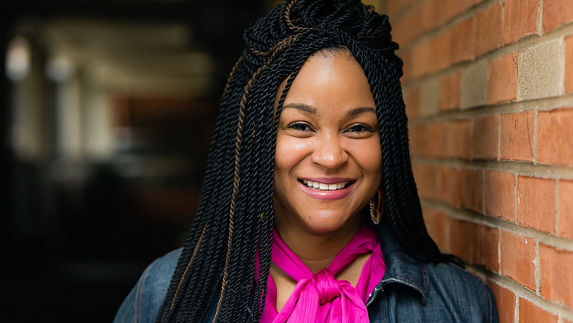
Psychological Sciences (M.A.)
Welcome to the Master’s program in Psychological Sciences at Rutgers University-Camden. Our program offers an experience that strikes a balance between rigorous academic classes and individually supervised research apprenticeships. While we do not provide training or clinical licensing in psychological assessment, counseling, or therapy, we do specialize in fundamental and applied research, ensuring you receive a comprehensive academic foundation. This specialization underscores our commitment to equipping students with the necessary skills in scientific research methods, which in turn empowers them to effectively address real-world challenges.
TAKE THE NEXT STEP
The Psychology program at Rutgers-Camden deepens students’ comprehension of human behavior within the context of people’s lives. We highly value various research methods in psychology, encompassing quantitative, qualitative, basic, and applied approaches. Our commitment extends to addressing disparities within the field of psychological science, and we are dedicated to cultivating an inclusive environment that promotes a broad understanding of psychology across diverse individuals, families, and communities.
What makes our program unique?
Scholarships and Funding
Fellowships and funding opportunities for highly qualified students
Two Distinct Tracks
Thesis track for students interested in doctoral study and content track for non-academic research careers
Engagement with Research
Weekly Brownbag Lecture Series allows students to engage with research from diverse institutions and research centers
Flexible Learning
Evening classes to accommodate students who work during the day
Our program is designed for students preparing for doctoral programs or seeking research careers in fields like marketing or pharmaceutical research. Notably, our graduates have been accepted into prestigious Ph.D. programs worldwide. Please note that our program focuses on basic and applied research and does not provide clinical licensing or training in psychological counseling or therapy.
Program Overview
DETAIL | DESCRIPTION |
|---|---|
| DEGREE | Master of Arts (M.A.) Accelerated option available |
| CREDITS | 30 credits |
| FORMAT | Full-time or part-time, on-campus |
| DURATION | 4-5 semesters |
| FUNDING | University, Graduate School, and Departmental Funding Available |
Program in Action

PAVING THE WAY FOR OTHERS
Jason Snyder, benefiting from a nurturing campus atmosphere, formed strong bonds with peers and faculty, attributing academic success to their guidance.

RESEARCH LABS
Graduate program research features faculty-run labs. Students access labs for experiments, surveys, data analysis, and paper writing. Notable labs: Distraction, Moral Development, Emotion.

OUR FACULTY
The faculty studies human behavior in real life, using diverse methods. We address disparities and create an inclusive environment for diverse psychology understanding.
Featured Courses
View the list of Course Descriptions.
RESEARCH METHODS (56:830:580)
Research Methods covers designing, conducting, and analyzing research, including issues of ethics, informed consent, control groups, measurement, and data collection. Topics may include basic research designs and statistical analyses, including experimental, quasi-experimental, survey, and archival research, and associated statistical, computer, and graphical techniques, with the goal of preparing students to design and carry out methodologically sound research projects.
GRADUATE ABNORMAL PSYCHOLOGY (56:830:640)
The course introduces students to major psychopathologies, DSM-IV-TR classification, research-based understanding, and effective treatment approaches for psychiatric disorders.
STATISTICS & RESEARCH DESIGN (56:830:650)
The course emphasizes multivariate design, including between and within subjects, mixed models, regression, covariance analysis, computerized data analysis, and graphical representation for application.
GRADUATE HEALTH PSYCHOLOGY (56:830:648)
This course focuses on understanding psychological processes that influence health, contribute to our happiness, and provide a sense of meaning in our lives. Topics to be discussed include: stress and coping, personality and health, health behaviors, the context and providers of health care, factors that promote happiness, strategies to improve happiness, and ways individuals create meaning in their lives. The changing health care environment and the need to understand the role of individuals’ lifestyles in determining their health and well-being is emphasized.
GRADUATE SOCIAL PSYCHOLOGY (56:830:635)
This course will review theory and research in social psychology. Content will be drawn from classic work, both theoretical and empirical, and contemporary perspectives.
GRADUATE PHYSIOLOGICAL PSYCHOLOGY (56:830:665)
This course will explore recent advances in physiological psychology in an in-depth manner. Topics to be addressed include memory and learning, language, vision, emotion, eating, substance abuse, autism, schizophrenia and affective disorders.
Admissions Requirements
DETAIL | DESCRIPTION |
|---|---|
| TRANSCRIPTS | Applicants must hold a recognized B.A./B.S. degree with a minimum GPA of 3.0 and submit official transcripts of all undergraduate and graduate coursework. |
| LETTERS OF RECOMMENDATION | Two (but preferably three) letters of recommendation addressing your potential for graduate study in psychology. |
| PERSONAL STATEMENT | A statement about your personal and professional goals. Identify whether you are interested in the Content Track or Thesis Track. For the Thesis track, include areas of research and faculty members you might be interested in working with. |
| WRITING SAMPLE | A writing sample (e.g., a paper you wrote for an undergraduate course) |
Application Deadlines
Preference is given to those submitted before the deadline for both decisions and funding opportunities. Applications received after the deadlines will be considered based on available space and budgetary constraints.
Fall
MAY 15
Spring
Not Offered
Summer
Not Offered
Reach Out to Us
Let’s begin a conversation about your academic and professional goals. If you have questions regarding the curriculum, faculty, admission criteria, or committee, please feel free to contact the Graduate Program Director. For administrative inquiries concerning the application process, campus tuition, and fees, reach out to the Graduate School. We are dedicated to assisting you from application to graduation day.
GRADUATE SCHOOL CONTACT
Erick E. Watt-Udogu
Assistant Dean, Graduate School-Camden
erick.watt-udogu@rutgers.edu
(856) 225-6149
Take the Next Step.
We invite you to explore the boundless opportunities that await you here, where a world-class faculty, diverse community, and innovative curriculum converge to nurture your intellect and foster your professional growth. Your future starts with a simple yet significant act – learning more about the exceptional programs we offer. So, why wait? Start your application journey with us, and together, we’ll unlock a future filled with possibilities and endless success.